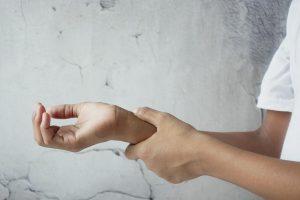
There are some wrong habits that people used to do in the month of Ramadan. These habits harm the health of the body and cause many unhealthy effects for the body. In this article, we discuss the most important and most prominent wrong health habits in the month of Ramadan.
The most prominent health mistakes in the month of Ramadan
The Holy Month.. Among the most prominent of these customs:
Drink a lot of water at Suhoor
Some believe that drinking a lot of water at the time of Suhoor or before dawn protects the body from thirst during the day, but nutritionists confirmed that this habit increases the work of the kidneys to get rid of water, and increases the desire to urinate, which may cause thirst during the day, and they advised to eat rich foods With water, which works to gradually secrete water in the body during fasting.
Eat quickly during breakfast
Experts recommend eating dates before breakfast to provide the body with the necessary energy, or eating warm soup at the beginning of the meal to help the stomach receive foods, and avoiding eating basic types of foods quickly during breakfast.
Drink cold water right at breakfast
Scientific studies have proven that drinking cold water directly at breakfast may reduce the movement of blood to the stomach and intestines, which affects the body with digestive problems such as colic or cramps, and also leads to difficulty digestion, obesity, and frequent acidity after breakfast, so nutritionists advise Drink lukewarm water at room temperature after breakfast or drink date milk.
Neglecting salad dishes
One of the habits that nutrition experts have called for avoiding is paying attention to basic dishes and neglecting the salad dish on the Ramadan table, as it is important that the breakfast and suhoor meals contain vegetables rich in various vitamins and minerals.
Have dessert after breakfast
Eating sweets immediately after breakfast causes the accumulation of fat in the body, and increases obesity and cholesterol, so you should wait a little before eating sweets and be satisfied with a small piece, preferably once or twice a week as a maximum.
Excessive consumption of these foods and drinks
Some people eat excessive amounts of fat, fried and fatty foods, as well as soft drinks that contain caffeine, during Ramadan, which leads to weight gain as well as heart disease.
Not eating fruit
Fruit is an excellent source of vitamins and minerals that the body needs in Ramadan, and it also helps to fight obesity and lose weight, so it is important to be careful to eat fruits during Ramadan.
salt and spices
Nutritionists advised to reduce salt and spices, stressing that eating salted foods or pickles helps to increase the body’s disposal of water, which causes a feeling of thirst and an irregular heartbeat.
sleep after breakfast
Studies have proven the need to avoid sleeping immediately after breakfast, as it causes more weight gain and a lower metabolism.

tea
Nutritionists have called for avoiding drinking tea immediately after breakfast because it absorbs calcium and iron and reduces the body’s use of food, so it is best to take it at least two hours after breakfast.





